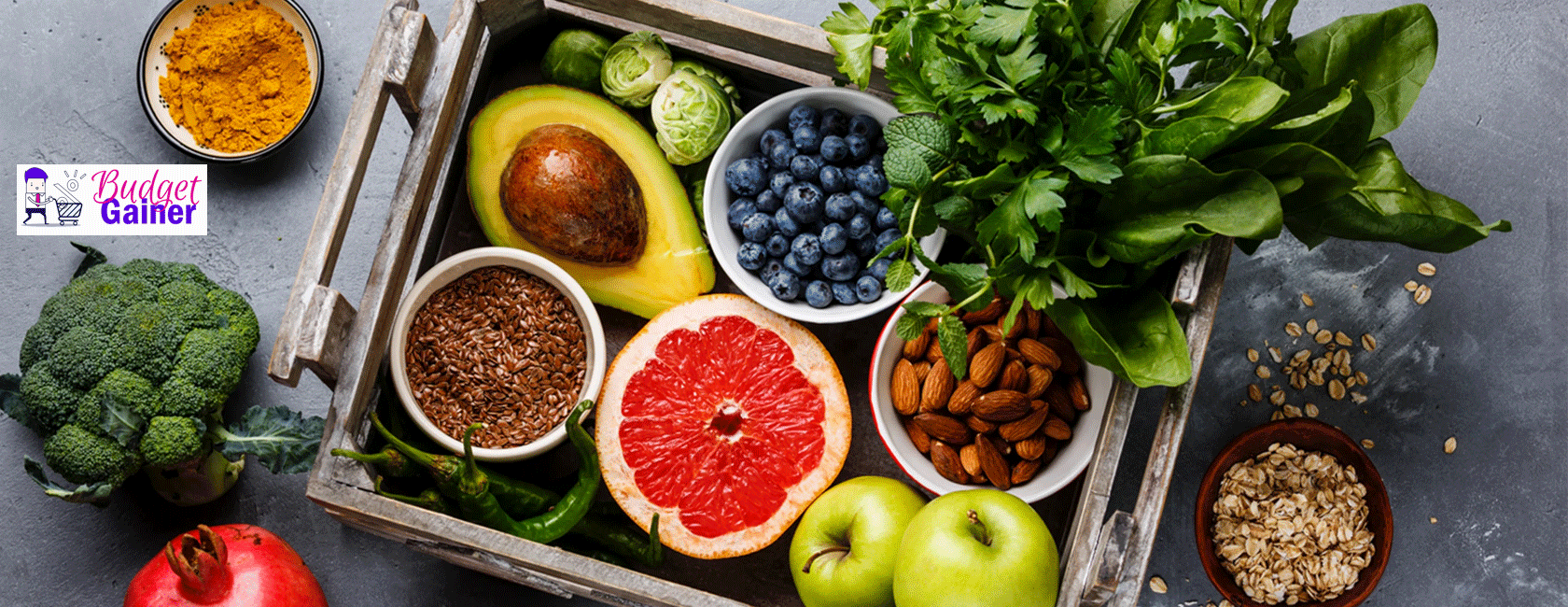
Editor's note: This article is part of budgetgainer.'s 2025 report.
Athletes
face a unique set of challenges when it comes to food costs. Fortunately, there
are plenty of affordable and nutritious foods available that will help you
maintain a healthy diet on a tight budget.
Keep a list of ingredients at home and prepare as much
food as possible before heading out to practice or competition. This will
reduce your food shopping expenses and save you time in the kitchen.
1.
Buy Fresh Fruits & Vegetables
Buying fresh fruit and vegetables in season is one of the
best ways to ensure you get the most nutrients out of your diet. It`s also a
way to support local farmers and their families.
It`s important to understand how produce is produced and
transported. It can take up to 3 days to ship fruits and vegetables, and some
types may have to stay in storage for months before they are sold.
In-season produce is often cheaper because it`s naturally
at its ripest. It`s more nutritious and tastes better. Save huge money on Fresh
Fruits & Vegetables at Holland and Barrett Discount
Code.
2.
Buy Whole Grains
Eating whole grains is an important part of a healthy
diet. These foods are high in fiber, vitamins, and minerals and can help control
cholesterol levels, weight, and blood pressure.
They also reduce your risk of diabetes, heart disease, and
some cancers.
Most Americans don`t eat enough whole grains, so it`s
important to make them a regular part of your diet. Here are some tips to get
started with Budget Gainer:
3.
Buy Frozen & Canned Vegetables
When you`re on a budget and want to stock up on veggies,
frozen and canned vegetables are excellent options. They`re often less
expensive than fresh and have the same amount of nutrients, depending on which
vegetable you choose.
Frozen fruits and vegetables are picked and flash-frozen
right when they`re ripe, so their nutrients remain intact. They also have a
longer shelf life than fresh fruit and vegetables, which can help you stretch
your grocery budget.
4.
Buy Nuts & Seeds
When it comes to nutrient-dense foods, nuts, and seeds are
hard to beat. They’re high in protein, fiber, vitamins, and minerals.
But, like all food groups, they’re also high in calories.
So, it’s important to choose a nut or seed that you can easily digest and
enjoy.
Nuts can be purchased in jars, cans, or vacuum-sealed
packages to preserve freshness. However, they can also go rancid if they’re not
stored properly.
5.
Buy Fresh Fruits & Vegetables in Season
Fruits and vegetables are available year-round, but the
flavors and nutrients of products can vary based on when they`re in season.
That`s why eating fresh fruits and vegetables that are in season provides a
more balanced diet.
It also helps to reduce the environmental impact of food
production and transportation. When produce is harvested out of season, it has
to travel a long distance and undergo managed growth conditions.
Produce that`s in season can taste fresher, have higher antioxidant
content, and be more affordable. It also helps to support local farmers.
6.
Buy Healthy Fats
Fat is a key component of any healthy diet. It`s
important to consume enough of the good stuff, such as monounsaturated and
polyunsaturated fats, to keep your heart healthy and provide fuel for your
muscles, brain, and bones.
Saturated fats, on the other hand, can lead to weight
gain and several health problems. For example, high-fat dairy like ice
cream and butter can increase your risk of developing cardiovascular disease.
To get the most Health&
Beauty Coupons benefits out of your dietary fats, it`s best to opt for high-quality
plant oils, like olive oil or avocado oil, as opposed to heavily processed
trans fats found in margarine and commercially packaged cooking sprays.
7.
Buy Healthy Beverages
One of the best ways to stay hydrated is by drinking
beverages that are high in water, low in sugar, and rich in vitamins and
minerals. Ideally, you want a drink that is hydrating, full of nutrients, free
from additives like food dyes and high fructose corn syrup, and as little added
sugar as possible.
When it comes to beverages, there are many different
types, such as fruit juice, vegetable juice, whole milk, sports drinks,
vitamin-enhanced waters, and alcoholic beverages. Each has its pluses and
minuses, so it’s important to choose wisely.
Conclusion
To perform at a high level, athletes must fuel their bodies properly. That
means consuming the right amounts of carbohydrates, protein, and fats to support
their training and competition.
Carbohydrates supply energy for muscles and help maintain
blood sugar levels after workouts. They also help build muscle and improve
stamina.







